Principal Investigators
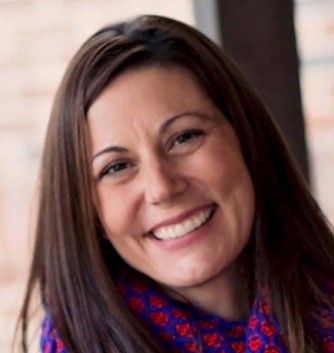 Dr. Cassie Quigley
Dr. Cassie Quigley
Department Chair and Associate Professor
Dr. Cassie Quigley is an Associate Professor of Science Education in the Department of Instruction of Learning at the School of Education at the University of Pittsburgh. She received her doctorate in Curriculum & Instruction at Indiana University in 2010. As former biology and physics teacher, she wondered how science was distancing students by eliminating certain knowledges and voices. While her scholarship on voice and power began many years ago studying discourse practices in science classrooms, the same underlying questions form the arc of her current research which asks the question, ““How can STEM be transformed to embrace multiple knowledges, a critical stance towards content and schooling?” She centers those individuals and communities, most often on the margins, as the focus of her work by asking critical questions about their participation in science.
Her current projects include understanding how girls and students of color can transform STEM education. Specifically, she is interested in how formation of STEM occupational identity can be leveraged to change the way we teach STEM. Through two grants (Grable and the National Science Foundation) She is working with ten schools across PA to study how their teaching of co-designed student-driven curriculum can be implemented in a variety of settings.
At Pitt, she directs the STEAM Education Program, is a member of the university’s Environmental Sustainability Coalition, and is the Chair of the Department of Teaching, Learning, and Leading. She is also the program chair for AERA’s Qualitative Research Special Interest Group, on the diversity committee for the Association for Science Teacher Educators, and on the coordinating committee for SEEDS (Science Educators for Equity, Diversity, and Social Justice).
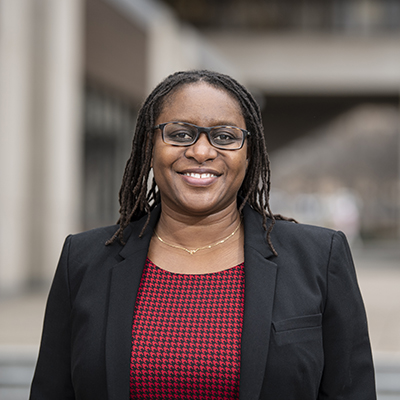 Dr. Tinukwa Boulder
Dr. Tinukwa Boulder
Associate Department Chair and Associate Professor
Dr. Tinukwa Boulder is an Associate Professor of Practice and Co-Associate Department Chair in the Department of Teaching, Learning, and Leading (TLL) in the School of Education at the University of Pittsburgh. She is also the Director of Innovative Technologies and Online Learning in the Office of the Dean. She received her doctorate in Instructional Systems and Workforce Development at Mississippi State University.
Dr. Boulder has over 15 years of experience in higher education with expertise in instructional design, faculty development, project management, innovative technology integration, consultative leadership, and teaching at the college level. She has experience creating content using different instructional technologies to develop pedagogically sound online courses that accommodate the needs of diverse learners. She uses constructivist learning theory to guide technology integration and instructional design processes. Her instructional design philosophy entails understanding faculty and students’ pedagogical and technological needs and addressing them using evidence-based instructional design methodologies.
Her research examines how emerging instructional technologies can enhance teaching in different learning environments (online, face-to-face, and hybrid). She is interested in studying and developing best practices for implementing innovative teaching strategies to support the learning needs of diverse student populations. Recently, her research agenda has shifted to examine how instructional design praxis aligns with critical theory to understand how established instructional design paradigms marginalize and exclude underrepresented people based on their intersectional cultural identities. Succinctly, critical ID scholars challenge IDs to reflect critically on their design work and explore ways to include communities in the ID process. This emerging research interest aims to understand what critical instructional design praxis means to ID practitioners and how they embrace this emerging pedagogy in their current ID routines.
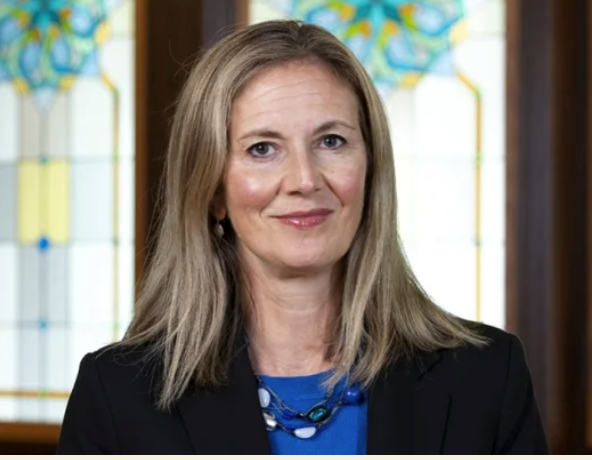 Dr. Amanda Godley
Dr. Amanda Godley
Professor and Vice Provost for Graduate Studies
Dr. Amanda Godley serves as Vice Provost for Graduate Studies and Professor in the Department of Teaching, Learning and Leading at the University of Pittsburgh. Dr. Godley’s research focuses on improving instructional quality and equity at the college and high school levels through high-quality classroom discussions, dialect diversity and inclusion in the classroom, and peer review and revision of writing. Her research has appeared in Educational Researcher, Linguistics and Education, Urban Education and other journals.
Dr. Godley pursues three strands of research: high-quality classroom discussions, dialect diversity and inclusion in the classroom, and peer review and revision of writing, particularly in urban schools. Her most recent line of research draws from advances in Natural Language Processing and Machine Learning to develop computer-based methods and apps for supporting writing development and high-quality classroom talk in high school and college settings. Godley’s research has been funded by the American Educational Research Association, the Institute of Education Sciences, the National Science Foundation, and the Spencer Foundation.
Dr. Godley is the author of the book Critical Language Pedagogy: Interrogating Language, Dialects and Power in Teacher Education (2018, Peter Lang). Her research has appeared in peer-reviewed journals such as Educational Researcher, Reading Research Quarterly, Research in the Teaching of English, Linguistics and Education, and Urban Education. In addition to her scholarship, Godley has led numerous educational workshops for school districts, national professional development organizations, and universities.
Graduate Student Researchers
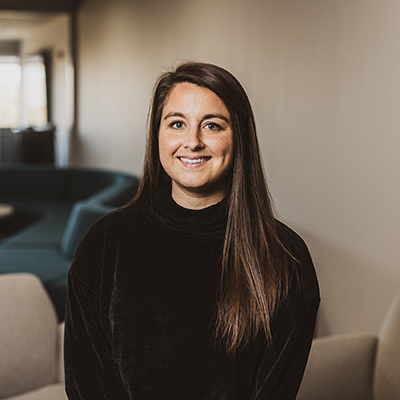 Hillary Henry is a Graduate Student Researcher and PhD student in the Learning Sciences and Policy program in the Department of Teaching, Learning, and Leading in the School of Education. Her research interests include discipline integration, equitable instruction, relational teaching, and student collaboration. Hillary’s background is in Elementary Education and Teaching, Learning, and Advocacy.
Hillary Henry is a Graduate Student Researcher and PhD student in the Learning Sciences and Policy program in the Department of Teaching, Learning, and Leading in the School of Education. Her research interests include discipline integration, equitable instruction, relational teaching, and student collaboration. Hillary’s background is in Elementary Education and Teaching, Learning, and Advocacy.
She is a former elementary and middle school teacher, grade level chair, and professional development facilitator. Additionally, Hillary served on the district’s Science Feedback Committee, collaborating to create district-wide assessments, STEAM related activities, and science labs. She earned her Master’s Degree in Teaching, Learning, and Advocacy with a concentration in Curriculum Instruction from the College of Charleston. During this time she took the opportunity to do educational research in Bhubaneswar, India studying their curriculum implementations as they pertained to equitable instruction and relational teaching.
As a researcher, Hillary has participated in two projects funded by the McDonnell Foundation. One developing a longitudinal case study of a mathematics instructional coach’s growth over time and the other designing tools to be used by instructional coaches as they work one-on-one with teachers. She is also involved in a research-practice partnership through the National Science Foundation that aims to integrate literacy and computer science in 5-8th grade classrooms. At Pitt, Hillary has served as a co-developer and teaching assistant in a Freedom Seminar on Environmental Justice and STEM Pedagogies and as the instructor of record for Mathematics Instruction for Young Learners- both offered through the School of Education. Additionally she serves on the Council of Graduate Students in Education as a co-chair of the Grants Committee and Conference Committee. Contact Information: hmh60@pitt.edu.
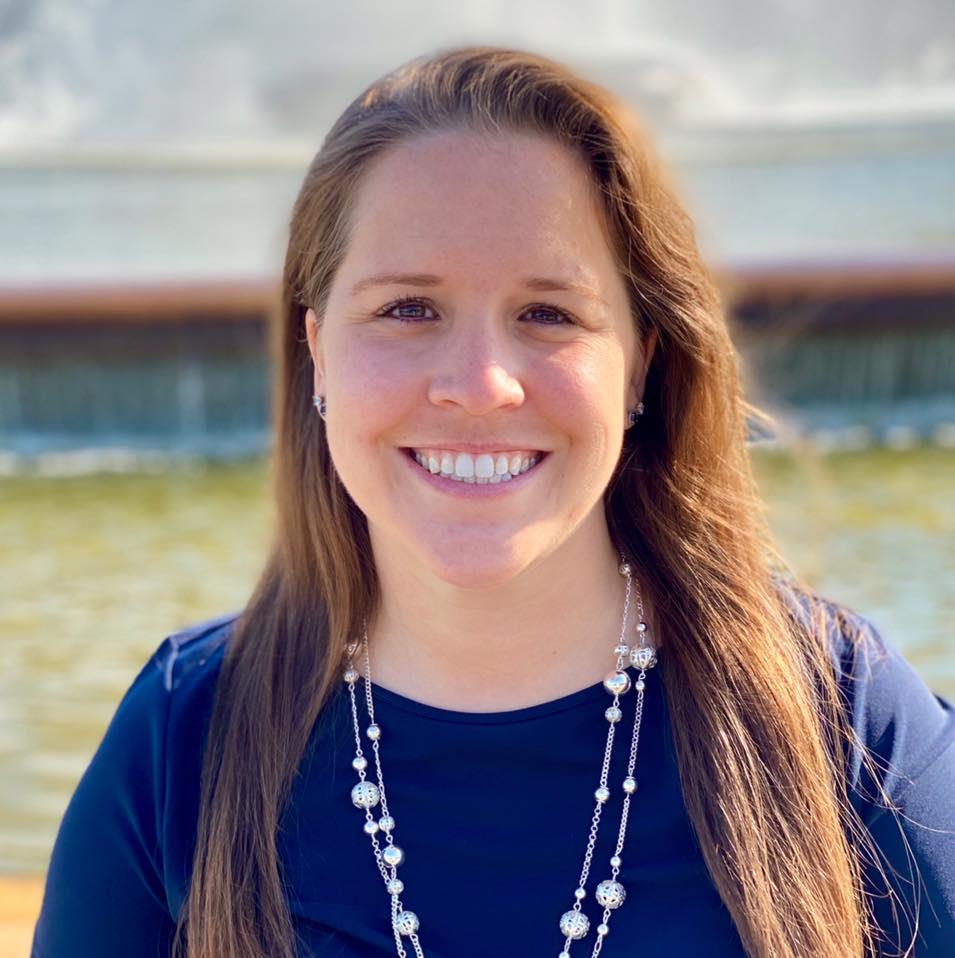 Holly Plank is a Graduate Student Researcher and Ph.D. candidate in the Learning Sciences and Policy program in the Department of Teaching, Learning, and Leading in the School of Education. Her research interests include preservice teacher education, Environmental Justice, computational thinking, STEAM, and research-practice partnerships. Holly’s background is in Earth and Space Science, formal and informal environmental education, and international education.
Holly Plank is a Graduate Student Researcher and Ph.D. candidate in the Learning Sciences and Policy program in the Department of Teaching, Learning, and Leading in the School of Education. Her research interests include preservice teacher education, Environmental Justice, computational thinking, STEAM, and research-practice partnerships. Holly’s background is in Earth and Space Science, formal and informal environmental education, and international education.
She is a former middle school science and physical science teacher, school leader, and instructional coach. As an instructional coach, Holly supported preservice and novice K-12 teachers in various core subjects and STEM electives with curriculum development, culturally sustaining pedagogy, learning environment planning, family and community engagement, real-time coaching, and more. She earned her master’s in Educational Administration, Curriculum, and Supervision from the University of Oklahoma.
As an educational researcher, Holly participated in several research-practice partnerships exploring collaboration between formal and informal educational organizations, computational thinking and collaborative problem solving, integrating Environmental Justice and data science, and integrating computer science and English Language arts.
At the University of Pittsburgh, Holly is an instructor of record for science and mathematics teaching methods courses in the Master of Arts in Teaching program. She has also served as an instructor of record in the STEAM certificate program and a co-developer and teaching assistant in Freedom Seminars on Environmental Justice and STEM pedagogies. Additionally, she serves on the Council of Graduate Students in Education on the executive board. Contact Information: holly.plank@pitt.edu
Participants
 Linda Filby teaches K-5 STEAM for two years at Charleroi Elementary Center. She was a Math and Science teacher for third grade for 17 years and a fourth-grade Math and Science teacher for one year at Charleroi prior to becoming a STEAM teacher. She is also the Elementary Gifted Teacher at Charleroi. Linda has a degree in Elementary/Early Childhood Education with a certification in Technology. In summer 2022, Linda helped write with the STEELS standards for Technology. Her main hobby is working on her farm and taking care of her horse, donkey, and goats. She has a son who went to PIA and now lives in Michigan as an airplane mechanic and a daughter who graduated from Penn State with a degree in Animal Science, Wildlife and Fisheries.
Linda Filby teaches K-5 STEAM for two years at Charleroi Elementary Center. She was a Math and Science teacher for third grade for 17 years and a fourth-grade Math and Science teacher for one year at Charleroi prior to becoming a STEAM teacher. She is also the Elementary Gifted Teacher at Charleroi. Linda has a degree in Elementary/Early Childhood Education with a certification in Technology. In summer 2022, Linda helped write with the STEELS standards for Technology. Her main hobby is working on her farm and taking care of her horse, donkey, and goats. She has a son who went to PIA and now lives in Michigan as an airplane mechanic and a daughter who graduated from Penn State with a degree in Animal Science, Wildlife and Fisheries.
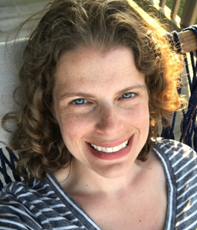 Elisa Greb-Link has been teaching eigth-grade English at East Allegheny since 2006, after graduating from the University of Pittsburgh with a BA in English Literature and completing Pitt’s School of Education program for teaching certification. She is also a Western Pennsylvania Writing Project teacher consultant and spent many years teaching for and/or coordinating the Young Writers Institute. Her passions include poetry, traveling, and word games, and she lives with her wife and two sons in Aspinwall.
Elisa Greb-Link has been teaching eigth-grade English at East Allegheny since 2006, after graduating from the University of Pittsburgh with a BA in English Literature and completing Pitt’s School of Education program for teaching certification. She is also a Western Pennsylvania Writing Project teacher consultant and spent many years teaching for and/or coordinating the Young Writers Institute. Her passions include poetry, traveling, and word games, and she lives with her wife and two sons in Aspinwall.
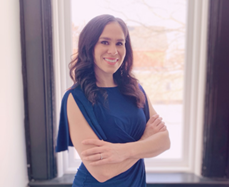 Raelyn Ruffus completed her undergraduate work at California State University, Chico, where she was a four-year student athlete and earned a Bachelor’s of Science in Exercise Physiology with a minor in Nutrition and option in Spanish. Raelyn believes that a vast problem in our society is the opportunity gap that exists in our schools. If all students were given the same tools, opportunities, and inspirations, our nation would be in a great place. Raelyn is committed to doing just that in her classroom and beyond. She is celebrated for being a role model to youth and for her creative lesson plans in the classroom that involve social-emotional learning, STEAM/STEM-focused lessons, WICOR strategies, and unique Project-Based Learning and Game-Based Learning units.
Raelyn Ruffus completed her undergraduate work at California State University, Chico, where she was a four-year student athlete and earned a Bachelor’s of Science in Exercise Physiology with a minor in Nutrition and option in Spanish. Raelyn believes that a vast problem in our society is the opportunity gap that exists in our schools. If all students were given the same tools, opportunities, and inspirations, our nation would be in a great place. Raelyn is committed to doing just that in her classroom and beyond. She is celebrated for being a role model to youth and for her creative lesson plans in the classroom that involve social-emotional learning, STEAM/STEM-focused lessons, WICOR strategies, and unique Project-Based Learning and Game-Based Learning units.
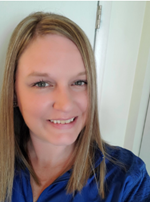 Amanda Snyder has been teaching eigth-grade Reading at East Allegheny since 2014. Prior to working at East Allegheny she was a substitute at McKeesport and West Mifflin School Districts. She also worked at Kennywood in their Operations Department for over 15 years. She graduated from Pitt with at BS in Psychology, completed Slippery Rock’s Post Baccalaureate program for Elementary Education, and earned her M.Ed. Reading Specialist from California University. Amanda loves traveling, sports, and reading. She lives with her husband and son in Seven Fields, Pennsylvania.
Amanda Snyder has been teaching eigth-grade Reading at East Allegheny since 2014. Prior to working at East Allegheny she was a substitute at McKeesport and West Mifflin School Districts. She also worked at Kennywood in their Operations Department for over 15 years. She graduated from Pitt with at BS in Psychology, completed Slippery Rock’s Post Baccalaureate program for Elementary Education, and earned her M.Ed. Reading Specialist from California University. Amanda loves traveling, sports, and reading. She lives with her husband and son in Seven Fields, Pennsylvania.
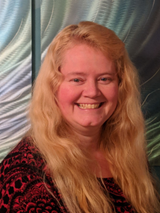 Holly Spalone has been teaching at East Allegheny for 24 years, after completing a Bachelor of Science in Biology at Penn State University and a Masters of Education in Secondary Science at Slippery Rock University. Throughout her career, she has taught a variety of science classes before moving into a technology coach position while continuing to teach AP Environmental Science, coach the Robotics team, and lead the STEM club and Envirothon. Holly was the recipient of the 2019 Champions of Learning award. Holly enjoys spending time camping, boating and playing board games with her husband, son, daughter and German Shepherd.
Holly Spalone has been teaching at East Allegheny for 24 years, after completing a Bachelor of Science in Biology at Penn State University and a Masters of Education in Secondary Science at Slippery Rock University. Throughout her career, she has taught a variety of science classes before moving into a technology coach position while continuing to teach AP Environmental Science, coach the Robotics team, and lead the STEM club and Envirothon. Holly was the recipient of the 2019 Champions of Learning award. Holly enjoys spending time camping, boating and playing board games with her husband, son, daughter and German Shepherd.
 Rebecca Wetherbee has been teaching Math and Engineering for five years, most recently at Manchester Academic Charter School. She graduated from Frostburg State University with her B.S in Computer Science and from Western Governors University with an M.Ed. in Learning and Technology Integration. She is a mentor on Manchester’s Vex Robotics Program, along with assisting with their Mathematics Competition Team. Her passions include robotics education, reading, and baking. She lives in Bethel Park, Pennsylvania with her husband and two dogs, Lucky and Zowie.
Rebecca Wetherbee has been teaching Math and Engineering for five years, most recently at Manchester Academic Charter School. She graduated from Frostburg State University with her B.S in Computer Science and from Western Governors University with an M.Ed. in Learning and Technology Integration. She is a mentor on Manchester’s Vex Robotics Program, along with assisting with their Mathematics Competition Team. Her passions include robotics education, reading, and baking. She lives in Bethel Park, Pennsylvania with her husband and two dogs, Lucky and Zowie.

